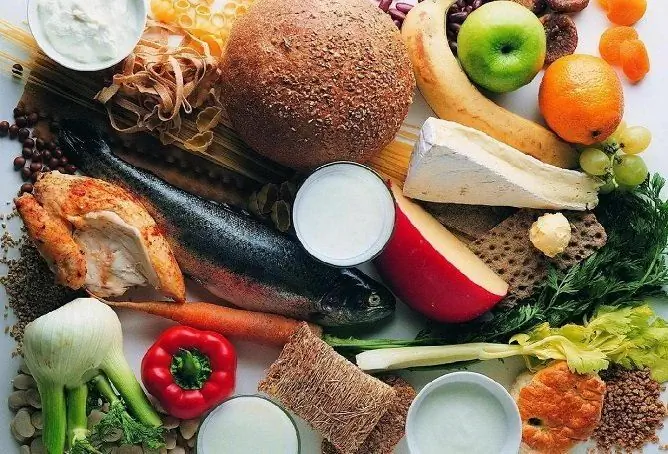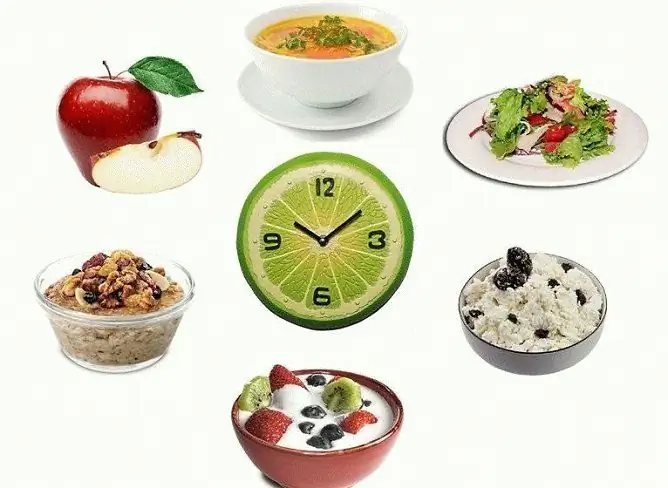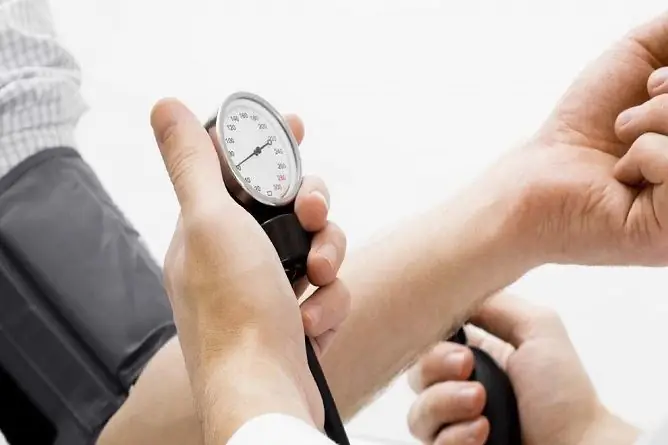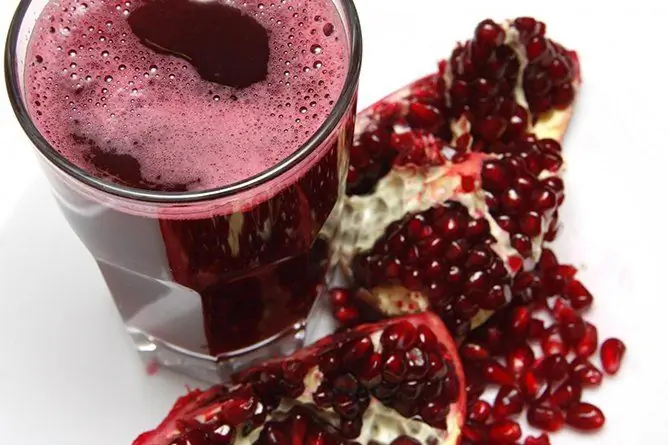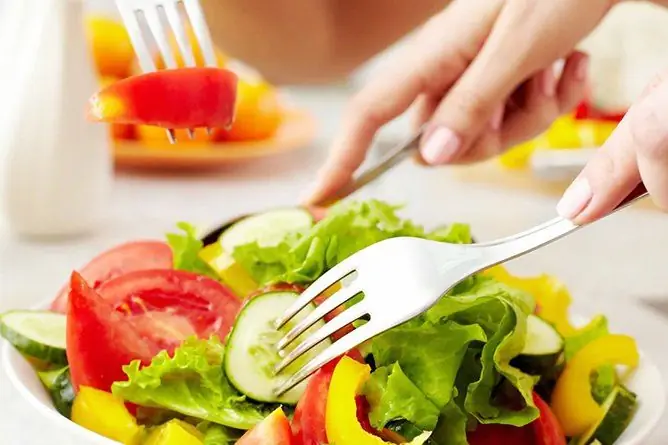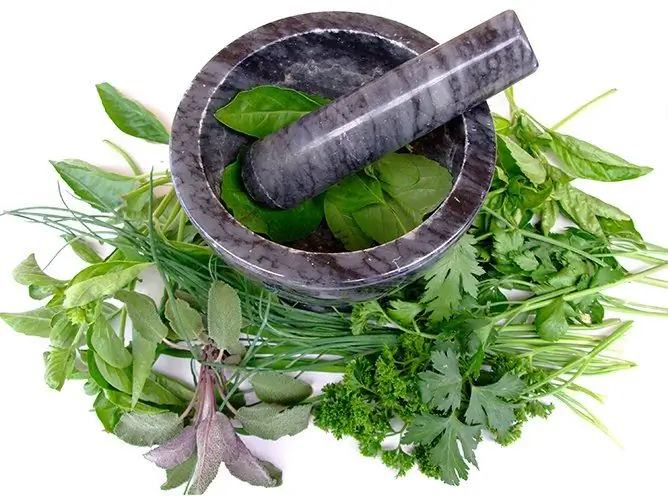- Author Rachel Wainwright wainwright@abchealthonline.com.
- Public 2023-12-15 07:39.
- Last modified 2025-11-02 20:14.
What to eat at high pressure: foods allowed and prohibited at high pressure
The content of the article:
- General rules for high pressure nutrition
- What you can eat at high pressure
- Foods prohibited under high pressure
- Video
What is there under high pressure is not an idle question. An unbalanced diet is one of the most statistically significant risk factors for hypertension. A person who has been diagnosed with arterial hypertension should choose a diet with particular care and caution. At first glance, nutrition may not seem to be the most important parameter, because it does not directly affect the cardiovascular system, but in fact, food components, in particular salt, fats, and some special foods, significantly affect blood pressure - both by causing organic changes in blood vessels, and and critically changing the water-salt balance and the volume of circulating blood. Therefore, people prone to hypertension should be careful about their diet, choosing food responsibly.
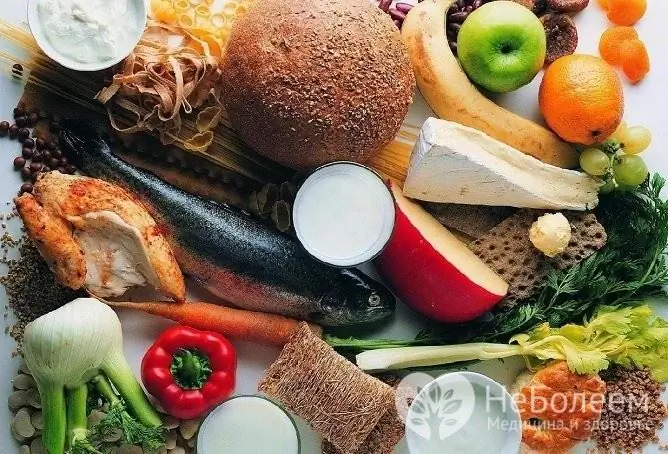
Proper nutrition is the key to successful treatment of hypertension, and in some cases, the main method of correcting pressure
The clinical diagnosis of "hypertension" is established at a constantly elevated pressure - 140 to 90 mm Hg. Art. and higher. As a rule, in this case, pharmacological drugs are prescribed for systemic and long-term administration. If the pressure is below this mark, drugs can only be taken to relieve individual bouts of hypertension, but a healthy lifestyle is a prerequisite for treating any form of hypertension. The changes should concern not only nutrition, but also physical activity, sleep, bad habits.
General rules for high pressure nutrition
There are several mechanisms that increase blood pressure that can be compensated for by proper nutrition. Normalization of the diet works over time, the effect of a healthy diet will be felt around the second week of maintaining the diet, but it will be persistent and will reduce the drug load on the body.
Blood pressure is influenced by the amount of free fats that are in circulation, including cholesterol. Cholesterol-containing foods cannot be completely ruled out, because cholesterol takes part in many biochemical transformations in the body, is a precursor of important hormones. But it is necessary to carefully control its level, since an increase in the concentration of its free forms leads to the development of atherosclerosis - and this disease reduces the elasticity of the arterial wall and therefore is one of the main risk factors for hypertension.
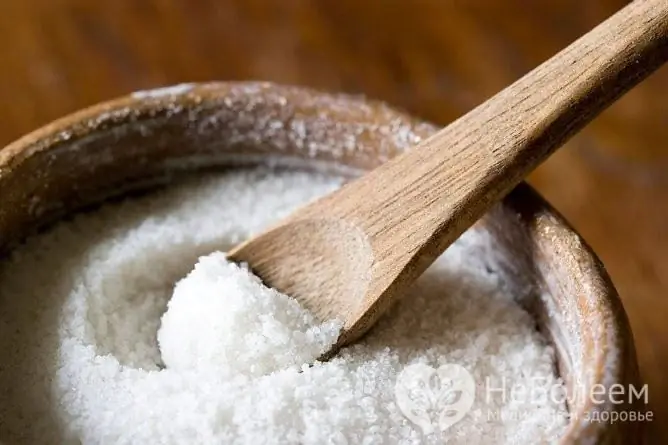
The use of table salt for hypertension should be significantly limited, or abandoned altogether
Special attention should be paid to the volume of circulating blood (BCC) and the factors on which it depends. This is table salt - it contains sodium ions, which retain water and cause thirst. And the larger the volume of blood, the higher its pressure. Based on these data, a list of basic recommendations for proper nutrition at high pressure has been compiled:
- Limit the amount of fatty foods in the diet.
- To diversify the methods of heat treatment of food - the best option is baking, boiling and steaming. Frying in oil promotes the transition of fats under the influence of temperature into their harmful isoforms, therefore it is not recommended.
- Limit the use of sugar, confectionery, especially fatty ones.
- Modify the classic ratio of carbohydrates to fats and proteins from 4: 1: 1 to 2: 2: 1 - if you consume too much carbohydrate food, metabolites contribute to the development of atherosclerosis and weight gain.
- To reduce the total caloric intake of overweight patients, as it impairs the work of the heart and vasomotor center.
- Completely exclude or significantly limit salt intake in order to normalize urine output.
- Refuse the abundance of spices, hot and pungent spices.
- Stick to a fractional diet - it allows you to eat less without feeling hungry. In addition, this way of eating is favorable for the stomach and intestines, because it is much easier for the digestive system to absorb a small amount of food. You should eat in small portions 6-8 times a day.
- Do not drink drinks that increase blood pressure, in particular, strong tea, black coffee.
There is also a positive side to the issue - in addition to restrictions, there are many tasty foods that can and should be eaten with increased pressure.
What you can eat at high pressure
If you approach the formation of the diet responsibly, you can even make a practical and affordable menu at home that will not yield to attractive junk food in terms of its taste characteristics, but will reduce the risk of hypertension. So, what products are allowed for consumption:
- meat and fish. Protein is becoming an important part of the diet while reducing fat intake, and now account for most of the metabolism and energy production. Meat is recommended for hypertension, but it should be low-fat varieties - beef, chicken, turkey, rabbit. As for fish, it can be eaten practically without restrictions, excluding salted and smoked;
- dairy and fermented milk products - normalize the intestinal microflora and improve digestion. Preference should be given to fresh dairy and fermented milk products without additives, sweeteners are especially undesirable;
- cereals and legumes. Porridge make up an important part of the diet for hypertension, with the exception of semolina, it is better to refuse it. Legumes are rich in proteins, their inclusion in the daily diet has a beneficial effect on the state of the vascular wall;
- fresh vegetables and fruits - normalize the water-salt balance, contain many vitamins and nutrients that are beneficial for the heart and blood vessels and thus have a beneficial effect on blood pressure. They contain fiber, which improves digestion and improves bowel function. Caution is necessary for patients with diabetes mellitus - some berries and fruits contain a lot of sugar (for example, grapes). Beets, viburnum, chokeberry, strawberries, lingonberries, watermelon, parsley, garlic contribute to the reduction of pressure;
- foods high in potassium - during metabolic processes, it replaces sodium, which increases blood pressure. It is useful to eat dried fruits, raisins, baked potatoes, eggplants, zucchini.
Foods prohibited under high pressure
Some foods are capable of increasing blood pressure even in absolutely healthy people, especially since their use should be limited for patients with arterial hypertension. Other foods are not recommended due to their delayed negative effects on the body.
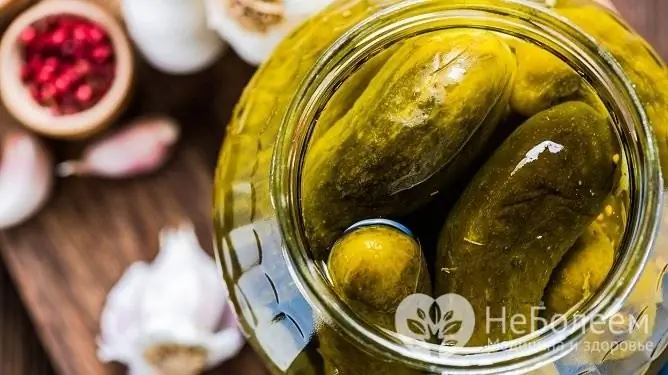
Pickles, pickles and canned foods are not recommended for people with hypertension
When hypertension is prohibited:
- pickles, marinades, especially with a high content of hot spices;
- canned food - contains a lot of fat, salt and spices;
- baked goods, sweets, industrial confectionery, chocolate - they contain a lot of especially harmful fat and sugar;
- white bread and other white flour products;
- carbonated drinks - contain a lot of sugar and other additives harmful to health (preservatives, stabilizers, dyes);
- coffee, tea, tonic drinks;
- alcohol - for a short time dilates blood vessels and slightly reduces pressure, but this effect is short-lived, the tone is soon restored. Alcohol causes dehydration, which has an extremely negative effect on blood vessels, especially capillaries;
- store juices - in contrast to healthy freshly squeezed juices, contain sweeteners and preservatives.
A diet with high pressure, based on the above recommendations, contributes to the overall health of the body. Compliance with it will allow you to get rid of many ailments, not only those associated with hypertension.
Video
We offer for viewing a video on the topic of the article.

Nikita Gaidukov About the author
Education: 4th year student of the Faculty of Medicine No. 1, specializing in General Medicine, Vinnitsa National Medical University. N. I. Pirogov.
Work experience: Nurse of the cardiology department of the Tyachiv Regional Hospital No. 1, geneticist / molecular biologist in the Polymerase Chain Reaction Laboratory at VNMU named after N. I. Pirogov.
Found a mistake in the text? Select it and press Ctrl + Enter.

